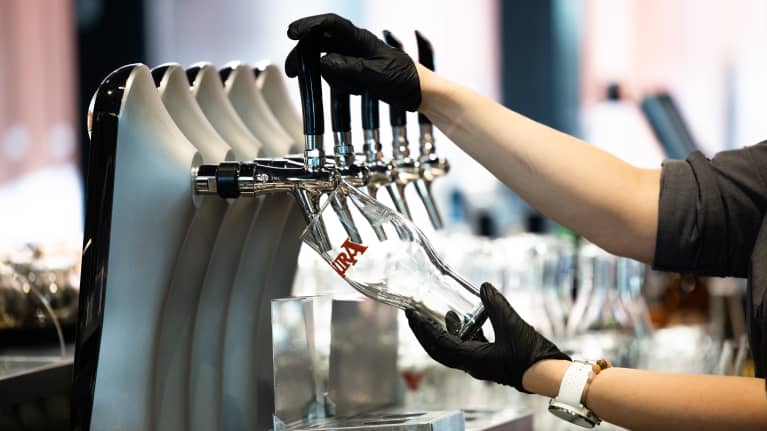The government has approved new restrictions on restaurants and bars in five regions of the country that are in the 'acceleration stage' of the epidemic.
The rules will apply to South-west Finland, Kymenlaakso, Uusimaa, Pirkanmaa and Päijät-Häme.
Hospitality businesses in those regions will have to close at 1am and stop serving alcohol at midnight, with capacity limited to 50 percent of normal levels for bars predominantly serving alcohol, and to 75 percent for businesses that mainly serve food.
THL: Case numbers up
Finland has seen weekly Covid case numbers quadruple since June, and the R0 number is now estimated to be between 1 and 1.25, according to the National Institute for Health and Welfare (THL).
On Thursday THL reminded the country that case numbers are still rising. On Wednesday there were 453 new cases, and the positivity rate has also increased to 2.3 percent of all samples tested.
That means the epidemic is still expanding, but serious cases and the need for hospital treatment are not rising at the same rate as earlier in the epidemic.
Most of the cases recorded recently have been infected in Finland, rather than arriving here from abroad, and some 60 percent of cases are among the 10 to 29-year-old age group which has the lowest vaccination rate.
More than half of the 10 patients currently in intensive care are aged below 50. The total number of patients in hospitals with Covid is 56.
The THL press release suggested that young people and children should try to minimise social contact to try and reduce the risk of contracting Covid.
Some dodging contact tracers
THL also recommends that people get the vaccine as soon as they can, and states that more than half of people aged over 20 have had the first dose of vaccine.
Contact tracing has been more difficult recently, as caseloads increase for tracers. STM official Taneli Puumalainen said that people don't always respond well when contact tracers call.
"It has been difficult to contact people, and there is also a suspicion that some have deliberately failed to answer tracers' calls," said Puumalainen. "If the call comes, the law says that information has to be given, and that is for everyone's benefit."
Even so, the percentage of cases where the source of infection was known has increased to 72 percent.
This week more than 6,000 people have been given official quarantine orders, up from fewer than 5,000 the week before.
There has not been a Covid death recorded in the last week, indicating the changing nature of the epidemic, but Puumalainen says infection numbers will indicate an increase in hospitalisations if they continue to rise.
